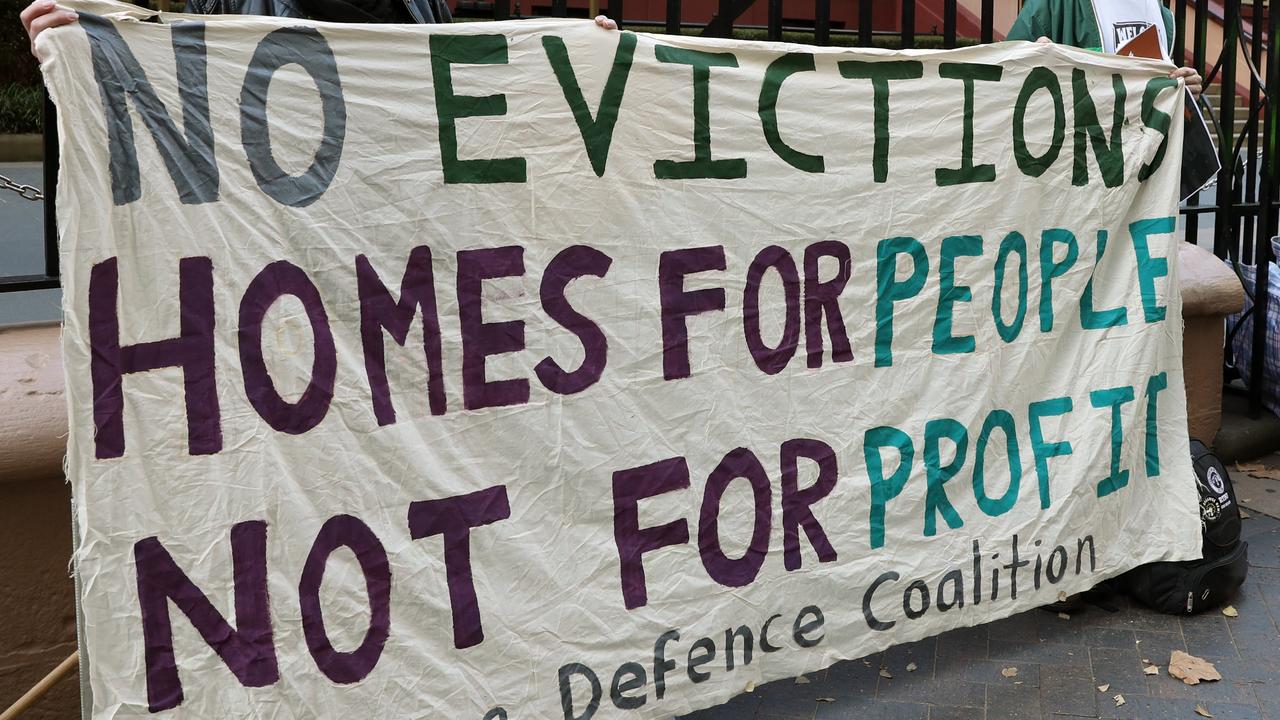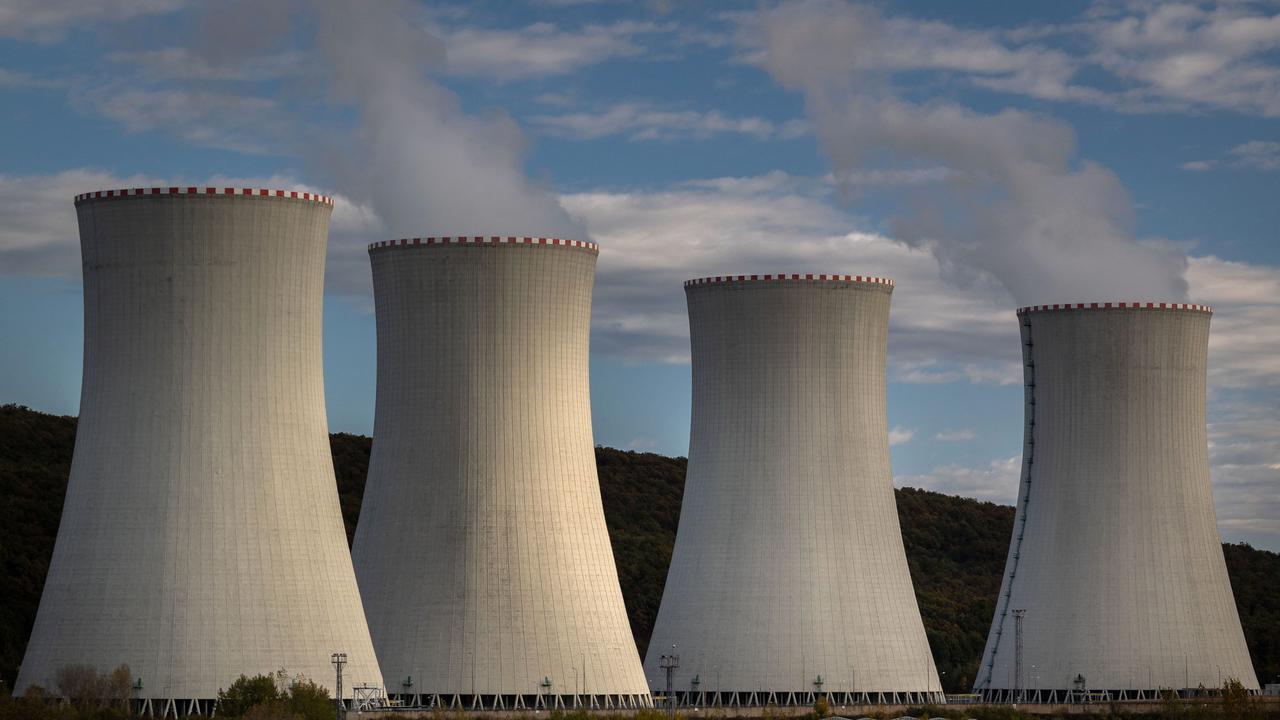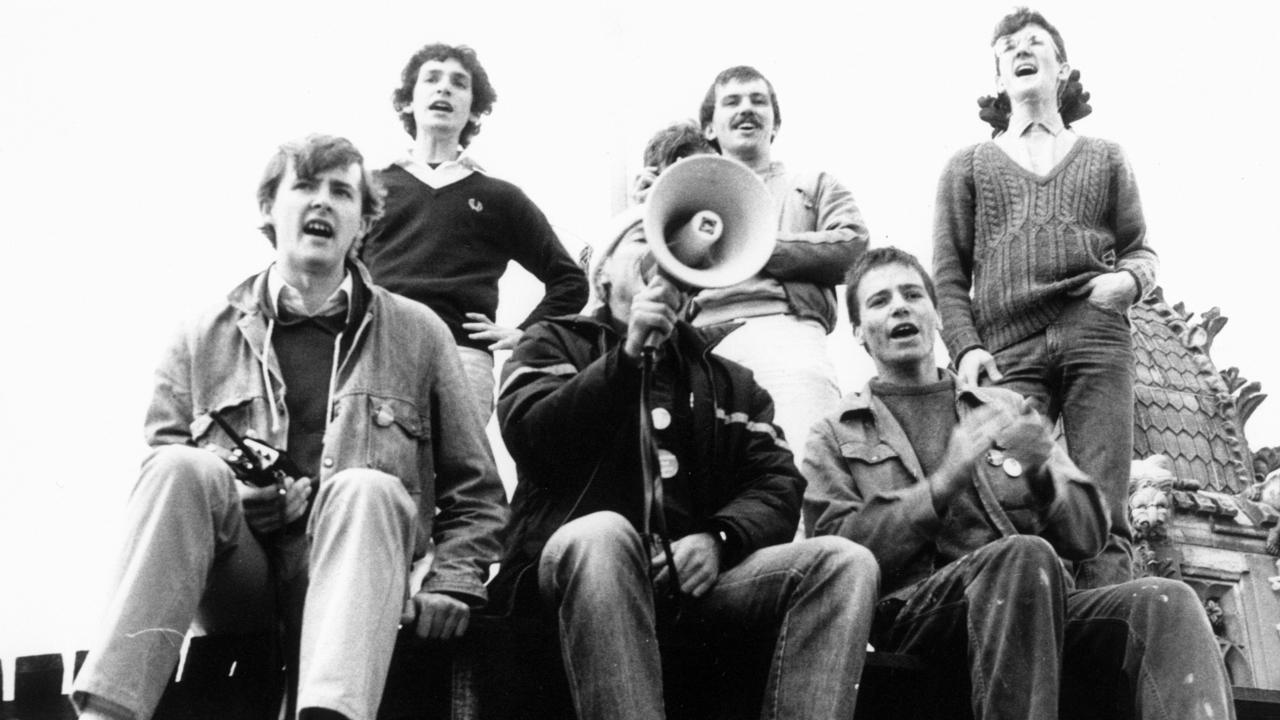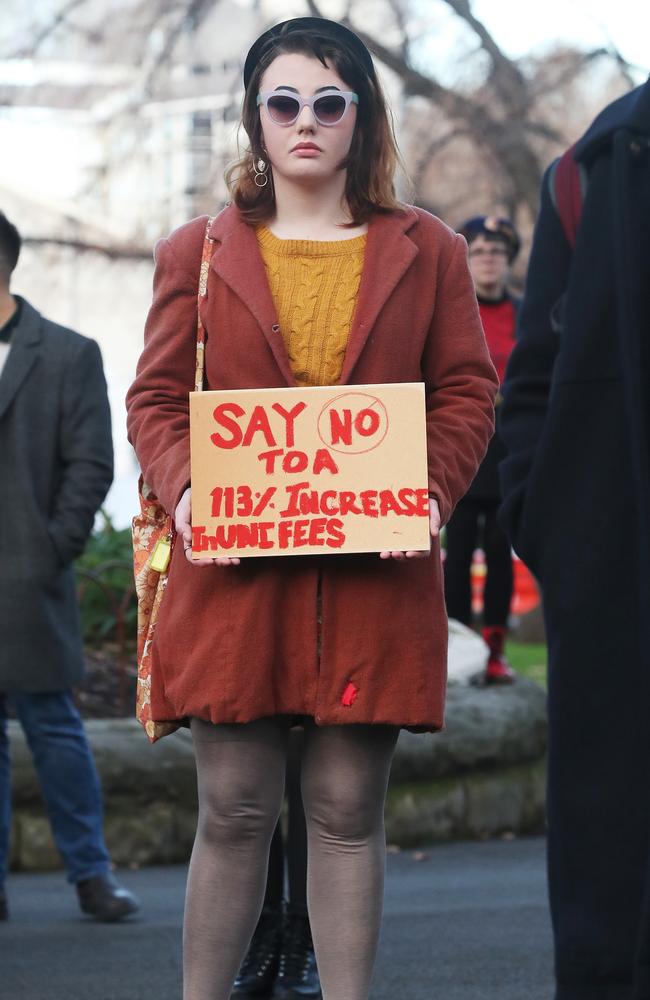‘Boomers in Government have failed us’: Gen Z launches ambitious Australian political party
A new Gen Z Australian political party has emerged with some incredible demands – here’s what young Australia is asking for.
An emerging Australian political party is writing serious cheques, demanding free university, no income tax for under 25s, net zero and nuclear power, and drug decriminalisation.
And it’s hoping to get it done with an army of political social media influencers.
The Gen Z Party emerged from the ether this week in a boomer-bashing squall.
“The Boomers in government have failed us,” its promotional material declares.
“The fossils in government must go.”
There are around 4.6 million Zoomers (ages 11 to 26) in Australia at last count, close to one-fifth of Australia’s population, and it’s the voters and political aspirants among that demographic that 19-year-old Melbournian Thomas Dolan wants to mobilise.

It’s not Mr Dolan’s first foray into the political arena. At just 18 in 2022, he ran for the critical Victorian seat of Bayswater in the state election but fell far short, securing just 2.2 per cent of the votes.
That tilt was under the banner of the Democratic Labor Party, a party known for its anti-communist, predominantly Christian, socially conservative views, which fractured from the Australian Labor Party in 1955.
However, the political angles Mr Dolan now pursues suggest a radical shift in values.
Mr Dolan told news.com.au that he believed his generation was far more politically engaged than they are often chalked up to be.

“There’s 4.6 million Gen Zs in Australia with more turning 18 every year, and we all have to vote, but it’s like “who do we vote for?” he said.
“Yeah, we have Labor and the Greens, but there’s no total alignment.”
“Why are we voting for a bunch of lawyers to speak about our common experience and to represent us in parliament?”
What do they want?
If the self-proclaimed “socially progressive” party’s policy reforms are at all a reflection of the generation, it offers some interesting insights.
The policy initiatives, Mr Dolan said, are inspired by government-run youth summits that largely steer clear from social reform but share radical ideas for an economic and environmental overhaul.
The party’s environmental plan involves joining forces with The Greens in their push for Net Zero while ensuring all Australians become “fair and equal shareholders” of Australia’s natural wealth, first through taxing profits of “dirty exports” and by restoring resource mines to the National Trust.
The Zoomers want to see “burdensome tax penalties” on transnational companies operating in Australia that create or use single-use plastic items.
Gen Z party states it also wants any profit from exported coal redirected to provide Australians with free electricity and fund the transition to clean energy.
As for clean energy, the party surprisingly states it’s willing to embrace Australia’s energy boogeyman – nuclear power – citing its effectiveness in China, the United States, India and France.

Its social reform includes working towards a “more rational, tolerant, non-judgmental, humanitarian and understanding approach to drug use” and supporting a form of recognition of “the trauma that previous Australian governments have inflicted on the First Nations people.”
Economic reforms aim decisively at easing, or in some cases totally removing, financial strains for younger Australians.
The party has pledged to sure up housing, particularly rentals, for younger Australians through ending no-cause evictions, implementing a powerful “Tenants Rights Enforcement Watchdog”, two-year caps on rent increases and investment in social housing.
As for those seeking higher education, the party wants “what the Boomers got” – free university and TAFE.

“Once they got their free education and got into power, what was once a right became a privilege,” the party’s website states, which also pushed for a retrospective wiping of student debt.

The final and perhaps central economic reform the fledgling party promotes is zero per cent income tax for those under 25 who, the party argues, “have been hit the hardest by the cost of living crisis.”
As for further social policy reform, First Nations recognition and drug decriminalisation aside, Mr Dolan said: “I want to hear, watch and see what Gen Z thinks is the best way to do things, and we do that is by asking Gen Z what they want to say.”
He hoped his party would be a “broad church of Gen Z views”.
Influencers in parliament
Perhaps the most eye-raising element of Gen Z Party’s strategy is a section on its website titled “Influencers in parliament”, – which aims to do what it says on the box.
For Mr Dolan, the self-professed centrist who draws his political inspiration from Gough Whitlam, it’s a no-brainer.
He described it as pre-packaged with the ability to reach untold amounts of people that traditional media no longer can.
“Influencers have shared experiences and common world view with Gen Z,” Mr Dolan said.
“If they take bribes or lobby donations from BP, their following would cancel them.”
The website call-out – which asks for influencers with 10,000 followers or more to apply to run for the party – hopes a contingent of politically aspirational social media influencers can “be our voice.”

“As an influencer, you will be able to bring a fresh perspective and represent our interests on the issues that we care about,” the party states.
“You have the communication skills and have proven that you represent a sizeable portion of the Gen Z community.
“Parliament needs your passion. We need you.”
The party’s ambitious goal is to gain the balance of power in each state before “challenging the supremacy of the Boomers in the Australian Federal Government.”
The party first aims to register in Victoria, followed by Western Australia and New South Wales.
On January 16, the party will announce its first “Gen Z Influencers” to
contest state elections in 2024.
Mr Dolan said the response had been fervent from those who support his idea and those who are dead against it – a response he has found encouraging.
“Fundamentally, we need to represent ourselves because those we thought we represented us have failed,” he said.






